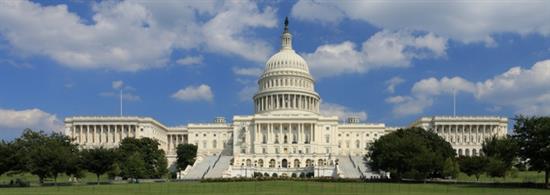Subcommittee Examines Legislative Proposals to Benefit Main Street Investors
Washington,
February 15, 2018
The Subcommittee on Capital Markets, Securities and Investments met yesterday to examine legislative proposals that would provide greater economic opportunity for derivatives end-users, which represent main street businesses of all kinds that are seeking to manage their commercial and operational day-to-day business risk. “It is important to note that derivatives are a vital part of the healthy functioning of our global economy,” said Subcommittee Chairman Bill Huizenga (R-MI). “Companies of all sizes in Michigan and across the United States use derivatives to better manage the risks that they face every day. Derivatives help to ensure that prices are stable and that customers are not subject to immense market fluctuations. We must work to ensure that the derivatives market is appropriately regulated and is working efficiently to benefit of main street investors.” A full list of the 11 legislative measures considered by the subcommittee is available here. Topline Quotes from Witnesses “Some of the regulations adopted as part of [Dodd-Frank] reforms go beyond what is necessary to achieve core risk mitigation and transparency objectives and may even be in conflict with or redundant to other regulations on the books. These new regulations impose undue costs on beneficial risk management activities by financial institutions and their end-user customers, including manufacturers and the agricultural industry…Targeted fixes to these regulations can help promote U.S. competitiveness, job creation and economic growth, without undermining the increased safety and stability brought about by the reforms.” -- The Honorable Kenneth E. Bentsen, Jr., President and Chief Executive Officer, Securities Industry and Financial Markets Association “Main Street businesses remain burdened by a number of Dodd-Frank rules. For example, U.S. prudential regulators, acting in accordance with their Dodd-Frank mandates, have continued to issue rules that have resulted in increased costs for end-users’ risk mitigation activities. The cumulative effects of these burdens and costs have threatened the ability of American businesses to affordably protect against risks associated with their day-to-day commercial operations.” -- Thomas C. Deas, Chairman, National Association of Corporate Treasurers, on behalf of the Coalition for Derivatives End-Users “ISDA and its member firms support regulatory reform that mitigates systemic risk by reducing counterparty credit risk and increasing regulatory transparency. Some of the current regulatory framework for the swaps markets could, however, be simplified to harmonize requirements, reduce cost and complexity and provide relief to smaller market participants and end-users.” -- Scott O’Malia, Chief Executive Officer, International Swaps and Derivatives Association, Inc. |


